Strength DefinitionCharacteristics or abilities that are seen favorably are referred to be strengths. Knowledge, traits, aptitudes, and skills are examples of strengths. Tasks or acts you excel at are considered strengths. Individuals use their qualities and skills to finish tasks, interact with people, and accomplish goals?the attribute or state of having strength or having the ability to exert or endure effort. For instance: He had strength, and that struck me. To increase the strength in her legs, she exercises. Avoid working too hard. You should save your strength for tomorrow. The upper body's strength is increased with pull-ups. 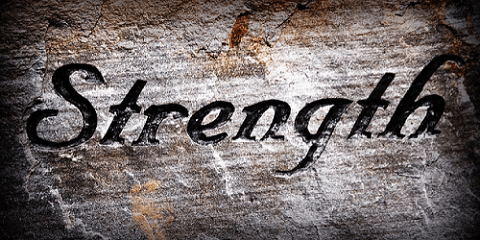
Characteristics Of StrengthDiscover your strengths by using these five strengths-based qualities. Focusing on and working diligently on your strengths rather than always investing all your efforts in your flaws is the most crucial step. It's only sometimes in your best interest to invest time in making something better so that it becomes ordinary when the same time may be used to make something better to become outstanding. I. Listen for YearningsWhat is tempting you? What is nagging at your mind, "Hey, give me a try!" The first indicator of strength is this. Searching for things that catch your attention after reading about them or observing others performing them would be best. Give it a try if you can envision yourself doing it as well. Yet, you must be careful to avoid being drawn in by a false desire. Be sure your motivation is based on something other than a wrong cause, such as wanting to operate a restaurant for profit rather than serving and satisfying clients or wishing to become a manager because of the power rather than because you are interested in being a leader. These false justifications will give you a brief burst of motivation, but as you understand it will need more work, you'll quickly lose interest. II. Watch for SatisfactionsWhen you accomplish something well, are you happy with yourself? Or do you appreciate that it's ended and never look back? Most people who enjoy their jobs are happy with the results of their labor. You want to feel satisfied after doing something since it would make you want to do more. In a sense, you want your work to become addicting. You adore it and are eager to finish. Determining whether you don't want to do it is as simple. Science may not be your strongest subject if you spend numerous hours on a project and are never interested in revisiting it. 
III. Watch for Rapid LearningHow fast are you at picking things up? It could be a strength if you pick up new skills quickly. Analyze your prior actions and identify some things you can do without trying. Whether it's picking up a new sport, developing software, writing a quick narrative, or mastering a musical instrument. The next step is to determine if you are a competent learner?learning through observing or reading textbooks?or a natural?learner who dives in and picks things up. It's critical to distinguish between the two approaches because companies need to know if they prefer hiring experts who can discuss their field or act on it. It could not be that you aren't clever if you find that you aren't learning anything new very fast or that no matter how hard you try, you can't understand the material; instead, it can be that what you are attempting to learn and do is not something you are good at. IV. Glimpse of ExcellenceLook out for situations where you could stand out. Sports would be a fantastic example. A triple-double by a basketball player in a playoff game displays strength. When you accomplish anything, what do others comment on or commend about you? Do you ever shine more than other pupils or coworkers? Start using that strength and work on mastering it if what you do attracts favorable attention. Several people have been known to utilize criticism as motivation to improve in areas where they lack strength but still fall short. Instead of concentrating so much on what needs to be improved, work harder at what you're already good at. V. Total Performance of ExcellenceConsider if your actions appear as remarkable to you as they do to others when you do something extraordinary. Does a trailing track star go faster, or does he have to consider how much quicker he needs to run? Given that others find what you do engaging, this could be the strongest indication that you've found your strength. The rate of progress over time is an indicator of overall performance. There is always an opportunity for improvement, so even when you're fantastic, all you want to do is get better. Types of StrengthStrength is mainly distinguished between Physical and Mental. These strengths are further below. Physical StrengthTheir physical strength is how much power or resistance a person can exert on a particular job. Simply put, it is the amount a person can lift, carry, or drag without endangering themselves. The time that a specific weight can be held or moved is similarly connected to physical endurance. Many individuals exercise to keep in shape worldwide, but when strength training is done, the key factor is how much weight can be lifted or moved, not how long it takes to do the activity. 
Physical strength is needed to carry or move large things, such as weights or household appliances. The workout program will change depending on whether the activity is a daily chore or a passion, like powerlifting. Less strength will be required, and more endurance if moving things is done frequently. In contrast, having power is necessary when participating in a powerlifting tournament. A person can build strength by repeatedly lifting the most weight they can without becoming hurt and, whenever feasible, increasing that weight. Maximum and quick strength, for instance, is beneficial for weightlifters. Strength endurance is useful for cyclists. Reactive strength is valuable for martial artists and track and field athletes. To stay in the game and make powerful kicks, a football player would require reactive strength, strength endurance, and speed strength. To perform resistance training with several repetitions, strength endurance is necessary. To provide variation, it is also beneficial to develop the other strengths. Here is further information regarding the various types of strength:
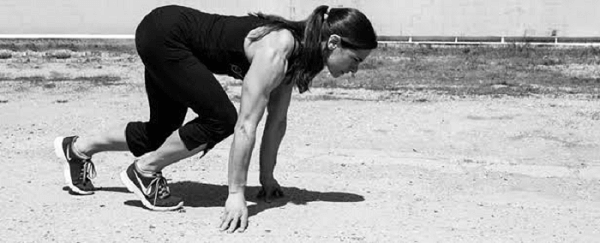

Mental StrengthA person's ability to perform to the best of their abilities, regardless of their situation, depends on mental strength. Stressors, demands, and obstacles may all be managed efficiently. To live the best life, it is essential to develop mental strength. One must cultivate our mental health by using cognitive tools and practices, just as people visit the fitness center to lift weights to improve their physical muscles. Our best mental health enables us to lead fulfilling lives, form deep social bonds, and have high self-esteem. It also supports our ability to take chances, explore new avenues, and deal with whatever challenging circumstances. One must increase their mental strength if they want to be mentally healthy. Those prioritizing their growth over other priorities might gradually build up their mental toughness. A person must cultivate healthy mental habits, such as practicing gratitude if they want to see improvements in their mental health. Many people notice physical benefits from exercising and eating well. 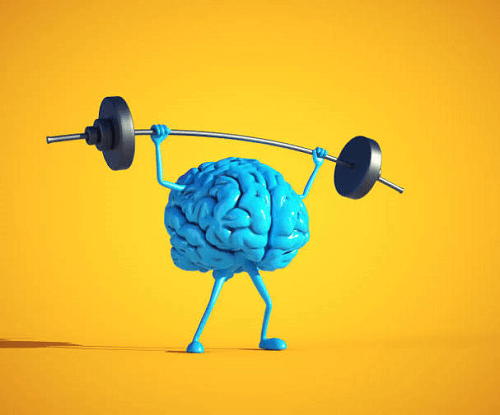
Similarly, giving up bad habits like eating junk food is necessary to witness physical improvements. Giving up bad habits like feeling sorry for ourselves is essential for mental enhancements. Everyone can get mentally stronger if they practice and use their mental muscles regularly as if they were aiming to get physically stronger. The Four C's of Mental Strength

If one's commitment level is low, it may be challenging to figure out how to set priorities for his objectives or modify successful routines or behaviors. Other individuals or competing priorities may also cause people to get easily distracted. The control and commitment scales represent the resilience aspect of the mental strength definition. That makes sense since having a sense of control over their life and the ability to make changes is necessary to recover from failures. It also demands concentration and the capacity to create routines and goals that will help them go back on their intended course.
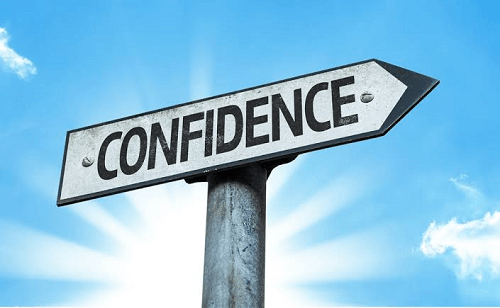
The scales for challenge and confidence collectively reflect the concept of mental strengths' confidence factor. This demonstrates one's capacity to see opportunities, grab them, and view challenging circumstances as learning experiences. This makes sense since individuals are more likely to turn problems into good results if they have confidence in themselves and their talents and can easily interact with people. Self-awareness and acceptance are the foundation techniques for enhancing overall mental strength. One needs to be conscious of where they are and accept that this is where one is to strengthen, develop, or add to our current mental fortitude. Then and only then can one start moving toward a more robust, healthier mental state. Relationship between Mental and Physical StrengthEveryone values those who are resilient on a mental and physical level. Being strong involves taking care of oneself, displaying self-assurance and initiative, and inspiring others. Another crucial aspect of overall health is maintaining a healthy weight and emotional fortitude. Maintaining physical activity throughout the years helps keep the muscles, bones, and joints healthy, which is crucial for maintaining good health. Moreover, studies suggest that those with good mental faculties also tend to be physically fitter and have more robust immune systems, both of which can aid in preventing chronic diseases. 1. Mental strength builds Physical StrengthWhat does it even mean to have mental strength? Just believing in oneself is the definition of mental strength. 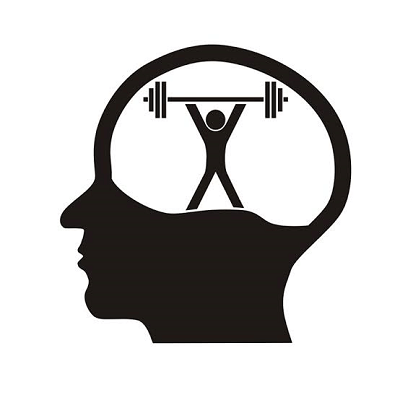

"What the mind believes, the body does." Our physical and mental fortitude are put to the test while We run. Our determination keeps us going even after our body starts to tire after a few rounds. And it makes us stronger by doing it each day. The biggest supporter of becoming physically fit and healthy is mental strength. 2. Physical strength builds Mental StrengthThe chemicals serotonin, dopamine, and endorphins are all released by one's body when one exercises. These joyful hormones produce a loop of activity, reward, and action. The feeling one gets after a run (or workout) inspires them to work harder the following day. The benefit goes beyond just being happy; it also validates their strength and capability. " Wow, I did it," they tell themselves. It offers them a great deal of control and power over their life. Moreover, it supports the principles of "activity" and "self-dependence" in building mental strength. 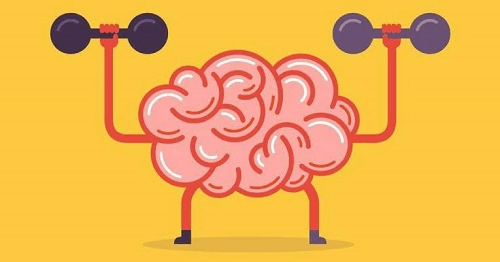
We feel like we are breaking down our walls and becoming a fitter, healthier version of "myself" every time We increase our run distance. Running that additional stride gives us the confidence and motivation to accomplish more. We have the strength and willpower to take charge of our life and make it what we want. And that requires both physical and mental strength. Identifying StrengthFinding things that bring joy and significance to one's life will be easier if one understands their abilities. But, if one has spent their whole life trying to improve their deficiencies, they likely find it difficult to identify and appreciate their strengths. We may not even have any advantages. Here are five suggestions to help anyone recognize and make the most of their greatest qualities and natural talents. I. Expanding the definition of strengthWhen considering our strengths, we frequently limit the description to abilities and character attributes that appeal to a hiring manager. Although abilities like critical thinking and excellent communication are attributes to be proud of, we are far more than our CV suggests. Our definition of strength should include all aspects of our life. Even though they are frequently disregarded, the following extraordinary skills and traits should be viewed as strengths: Emotional intelligence. Kindness and compassion. Resilience and refusing to give up in the face of seemingly insurmountable obstacles. Seeing the good in other people. Being a reliable friend. Patience. Stubbornly following own path. 
II. Increase self-awareness by keeping a journalOne needs to become more self-aware if one wishes to identify their strengths. Journaling is one of the finest ways to learn more about themselves. Self-discovery eventually happens when one openly expresses their ideas and emotions on paper. Journaling suggestions help people identify their abilities more quickly if they're in a rush and are interested in doing so immediately. Consider using these suggestions the following time you journal: Which tasks naturally come to me? What skills do I excel at despite having little instruction? Which academic topics did I excel in when I was a child? Do individuals often seek my assistance for a specific issue when they contact me? What can I do for hours on end without becoming bored? III. Take personality and strength testsParticipating in strengths-based quizzes is a more direct way to determine individual strengths. These tests are intended to assist people in learning more about their innate talents and abilities. Taking personality tests is a fantastic approach to increasing self-awareness and recognizing one's strengths. Five qualities are examined, and results are based on how well or poorly a person does in each trait: Openness. Conscientiousness. Extraversion. Agreeableness. Neuroticism. 
IV. Consulting close friends and family membersAsking those we know the best for assistance if we're too modest to recognize our strengths on our own. Find out what the spouse, close friends, and family members think are a person's greatest strengths. One could be astonished by their number of strengths but have never recognized them. Collect and evaluate the information from the loved ones. We likely possess that quality in plenty if a certain characteristic or talent is frequently mentioned. Asking someone for a compliment if we're too nervous or self-conscious to ask the ones we love. The person who knows us best in this world can tell us our strengths, and we should trust them when they tell us how awesome we are. V. Pay attention to praise from othersWhile one may not have given their strengths much thought, many other people likely have. Any former and current employers, co-workers, lovers, friends, and total strangers are the potential to leave a trail of hints that can help one identify their best strengths and personality traits. It's a good idea to pay attention to other people when they point out the nice aspects about oneself to discover their talents. Listen carefully to compliments from co-workers or managers. When our partners or friends commend us on performing a task well, take them at their word. When someone we don't know compliments us on a quality we frequently ignore, we should accept their gratitude. In addition to being a fantastic method to identify strengths, focusing on encouraging comments from others is a better option than dwelling on the bad. In A NutshellMost of us know that our talents and skills enable everyone to succeed and attain desired objectives. But, a person's abilities may also enhance their happiness and quality of life. According to the study, the traits most likely to increase satisfaction are those gratitude, hope, and love. Because of this, it's critical to be aware of your strengths and shortcomings and to create a strategy for converting existing weaknesses into strengths. 
Examining ourselves objectively and identifying our strengths and weaknesses might be challenging. Nevertheless, one could also seek assistance placing their core skills by emailing or texting their friends and families. This frequently assists people in discovering abilities and qualities that many may not even recognize as strengths since they are so adept at them.
Next TopicUrbanization Definition
|
 For Videos Join Our Youtube Channel: Join Now
For Videos Join Our Youtube Channel: Join Now
Feedback
- Send your Feedback to [email protected]
Help Others, Please Share










